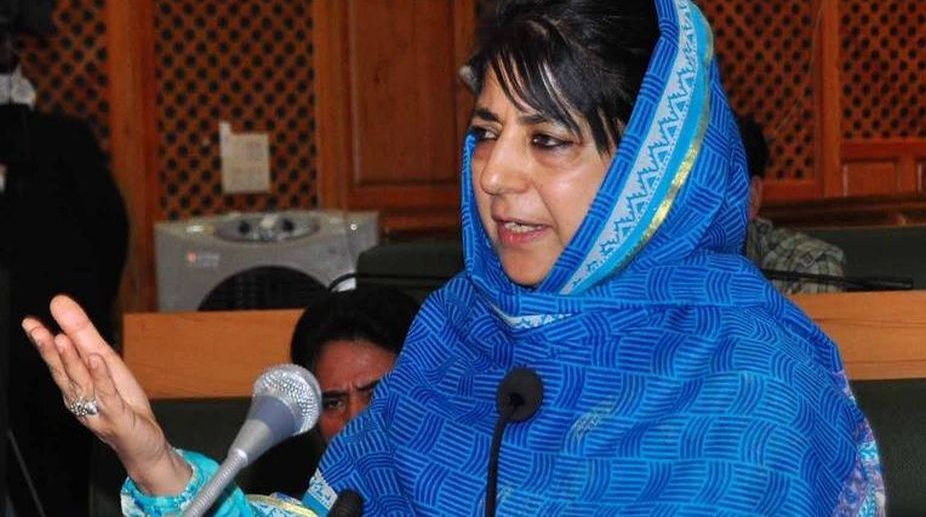Omar unveils calenders, trekking maps for J&K
Chief Minister Omar Abdullah on Tuesday unveiled calendars for the year 2025 and trekking maps created by the Department of Tourism, Jammu and Kashmir, in a ceremony held at the civil secretariat here.

Jammu and Kashmir Chief Minister Mehbooba Mufti (Photo: Facebook)
A comprehensive plan to revive silk production in Jammu and Kashmir has been prepared and as a first step foundation stone of a silk factory has been laid in Jammu by Chief Minister Mehbooba Mufti.
Till few years ago, the Kashmir silk had a high place in the domestic as well as foreign markets but the Chinese silk caused a severe setback to it.
Advertisement
Mehbooba on Saturday visited the Bari Brahmana Industrial Estate here and laid foundation of a Silk Factory and Filature unit. She also inaugurated the Government Joinery Mills and inspected the work at the EDI complex there.
Advertisement
The Chief Minister, on the occasion, was also briefed about a Silk revival plan by the Secretary, Industries & Commerce, Shailendra Kumar.
To be built at a cost of Rs. 16.84 crore, the Government Silk Factory would be constructed in five months.
Mehbooba also laid foundation of Government Silk Filatures to be built at a cost of Rs. 6.64 crore which too would be completed in the coming five months.
With the setting up of these units, silk weaving facility from cocoon to yarn would be established for the first time in Jammu division.
Earlier, Jammu had a government silk unit, but it was shut down several years ago as demand of local silk fell down.
The plan envisages revival of the Raj Bagh, Solina (both in Kashmir), Nowshera, Bari Brahmana and other silk rearing units.
As per the plan, the Government would be infusing adequate funds into the revival of these units to generate a final produce of 10 lakh metres of silk per annum in the State.
On the occasion, a deputation of employees of J&K Industries Ltd. met the Chief Minister and thanked her for the steps taken for the revival of their corporation.
Mehbooba was accompanied by Finance Minister Haseeb Drabu and Industries Minister Chander Prakash Ganga.
Mehbooba also inspected the on-going work at the Jammu campus of Entrepreneurship Development Institute (EDI) at the Industrial Estate. To be built over a cost of Rs. 82.89 crore, the Jammu campus of JKEDI is scheduled to be completed in three phases spread over a period of three years. It would have all the facilities like incubation centre, hostel, library and other interactive facilities for young entrepreneurs.
Advertisement